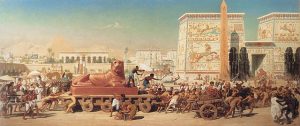by Lois Tverberg
It was a night of watching for the LORD to bring them out from the land of Egypt; and so on this night all Israel is to keep the vigil to the LORD for generations to come. Exodus 12:42 (NET)
Most know that the Jewish Passover celebration focuses on remembering how God redeemed his people from Egypt, but it also looks forward to God’s final redemption in the coming of the Messiah. The command to remember the deliverance from Egypt is clear to us, but it might be a mystery as to where Jewish people find the idea that they should look forward to redemption as well.
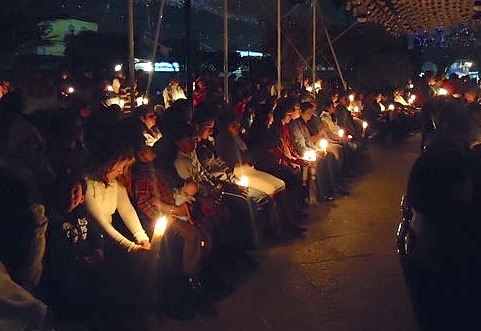
The answer is in Exodus 12:42, above, that says that all Israel is to keep vigil for generations to come. They saw this as meaning that they should be watching for what great thing that God will do next. Passover is referred to as a “night of vigil,” of keeping watch. Passover begins with the setting of the sun, as all days do in the Hebrew calendar. As the feast day begins, people are mindful of the need to watch for what God will be doing through the night and in the day ahead. The traditional way to observe this command is to open the front door of the house and look out – to show that you are standing alert. Typically, one of the children open the door to see if Elijah is there, because Malachi says that he will come before the Messiah:
“See, I will send my messenger, who will prepare the way before me. Then suddenly the Lord you are seeking will come to his temple; the messenger of the covenant, whom you desire, will come,” says the LORD Almighty…”See, I will send you the prophet Elijah before that great and dreadful day of the LORD comes. (Mal. 3:1, 4:5)
In Jesus’ time, of course, he explains that John the Baptist fulfilled the role of the “Elijah” who would come before him.
It is fascinating, in light of this tradition, that Christ really did complete his mission of dying for our sins on the very day that they were looking for their redeemer to come. Late at night, just hours after the Passover meal Jesus was arrested in the garden, and in the wee hours he stood trial. Before the next day had fully begun, he was being led out to death. Jesus’ words to his disciples in Matthew 26:40 take on special meaning to me now:
“Could you not keep watch with me for just one hour?”
Photo: A01333441jarh

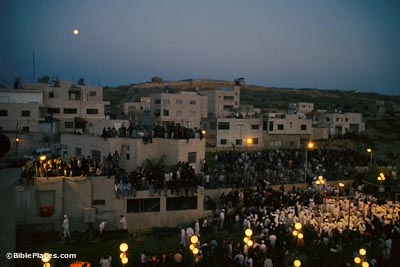
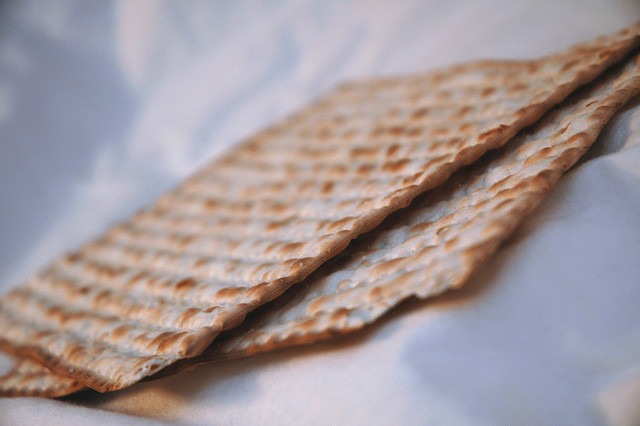
 Why do they do this? Surprisingly, the Bible gives multiple explanations about the significance of eating unleavened bread. In Exodus 12:34, it says that it is to commemorate their rapid departure from Egypt, when they didn’t have time to let their bread rise. But in Deuteronomy 16:3, it is called the “bread of affliction” and it seems to be a reminder of the misery of their slavery. Or, it could be understood as a picture of eating manna in the desert for forty years. It is paradoxical that unleavened bread represents both slavery and freedom, but Jewish sources agree that it does.
Why do they do this? Surprisingly, the Bible gives multiple explanations about the significance of eating unleavened bread. In Exodus 12:34, it says that it is to commemorate their rapid departure from Egypt, when they didn’t have time to let their bread rise. But in Deuteronomy 16:3, it is called the “bread of affliction” and it seems to be a reminder of the misery of their slavery. Or, it could be understood as a picture of eating manna in the desert for forty years. It is paradoxical that unleavened bread represents both slavery and freedom, but Jewish sources agree that it does.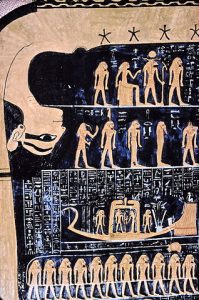 The very first instruction that God gave the Israelites as they were leaving Egypt was to establish a new calendar that was utterly unlike the Egyptian calendar. This may not seem significant to us, but how we measure time is fundamental for how we look at life. Our calendars define the importance of the day to the entire culture, saying whether we should work, rest or worship, or think about some great event in our past.
The very first instruction that God gave the Israelites as they were leaving Egypt was to establish a new calendar that was utterly unlike the Egyptian calendar. This may not seem significant to us, but how we measure time is fundamental for how we look at life. Our calendars define the importance of the day to the entire culture, saying whether we should work, rest or worship, or think about some great event in our past.